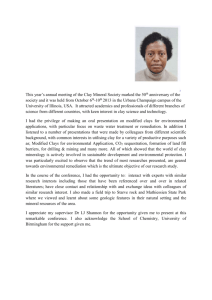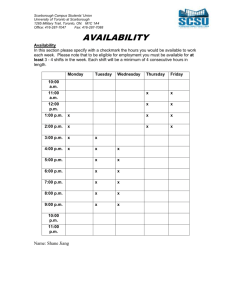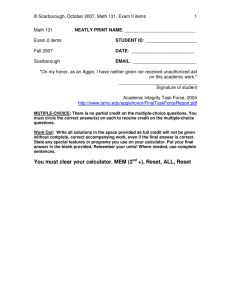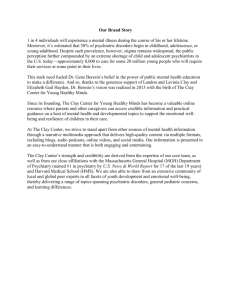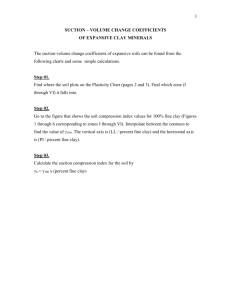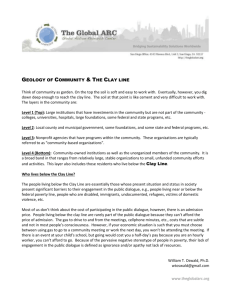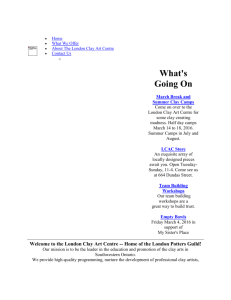MATH 141 Week In Review 4 1
advertisement
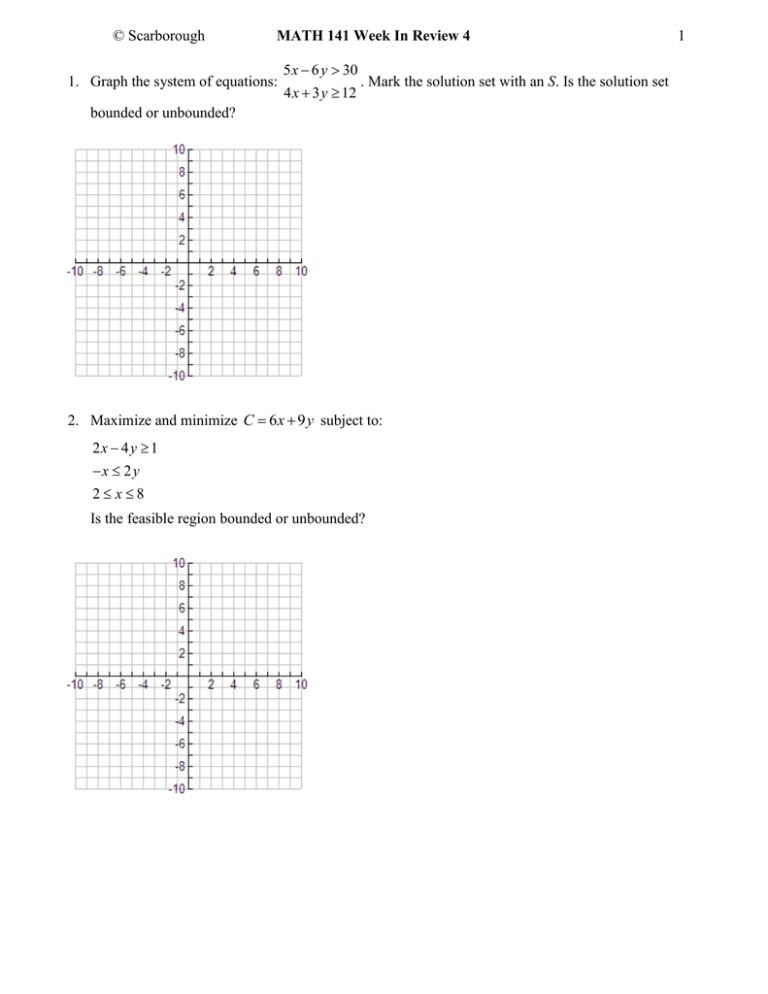
© Scarborough MATH 141 Week In Review 4 1. Graph the system of equations: 5 x 6 y 30 . Mark the solution set with an S. Is the solution set 4 x 3 y 12 bounded or unbounded? 2. Maximize and minimize C 6 x 9 y subject to: 2x 4 y 1 x 2 y 2 x8 Is the feasible region bounded or unbounded? 1 © Scarborough MATH 141 Week In Review 4 2 3. A bald cypress, which would sell for $50, needs 5 gallons of water and 10 grams of fertilizer each week. A live oak, which would sell for $80, needs 2 gallons of water and 3 grams of fertilizer each week. Each week there are 90 gallons of water and 150 grams of fertilizer available. If a local plant nursery wants to maximize their revenues while having at least two bald cypress trees available, how many of each type of tree should they grow? Discuss leftovers. © Scarborough MATH 141 Week In Review 4 3 4. A large clay pot requires 85 units of clay and 5 labor-hours to produce. A small decorative clay pot requires 14 units of clay and 11 labor-hours to produce. Due to warehouse space, no more than 622 large clay pots and no more than 950 small clay pots can be produced. There are only 12,250 labor-hours and 61,200 units of clay available. If the profit a large clay pot is $32 and a small clay pot is $5, how many of each type should be produced and sold to maximize profit? Discuss leftovers. © Scarborough MATH 141 Week In Review 4 4 5. An ice sculpturer creates carvings of dolphins and mermaids. For a dolphin, it takes 5 hours to freeze the water and 3 hours to carve. For a mermaid, it takes 2 hours to freeze the water and 4 hours to carve. Each week there are available 40 hours of freezing time and 48 hours of carving time. If dolphins sell for $150 each and mermaids sell for $300 each, how many of each type of ice carvings should the ice sculpturer create each week to maximize revenues? Discuss leftovers. © Scarborough MATH 141 Week In Review 4 6. If x is the number of coyotes and y is the number of deer, maximize M 10 x y x 24 2 y 3 x 54 y x2 x0 4 y 20 5 20 y subject to 3 © Scarborough MATH 141 Week In Review 4 6 7. Set up this linear programming problem, but do not solve it. Michaela has $800,000 available to invest in three types of investments: mutual funds, real estate, and stock. The mutual fund she is looking at has a rate of return of 4.5% per year. The real estate investment has a rate of return of 3.85% per year. The stock she is looking at has an 8.95% rate of return per year. Due to her youth, at least 65% of Michaela’s total investment is to be invested in the stock. For every $2 invested in the mutual fund, she has no more than $3 invested in real estate. How much should Michaela invest in each type to maximize her return?


